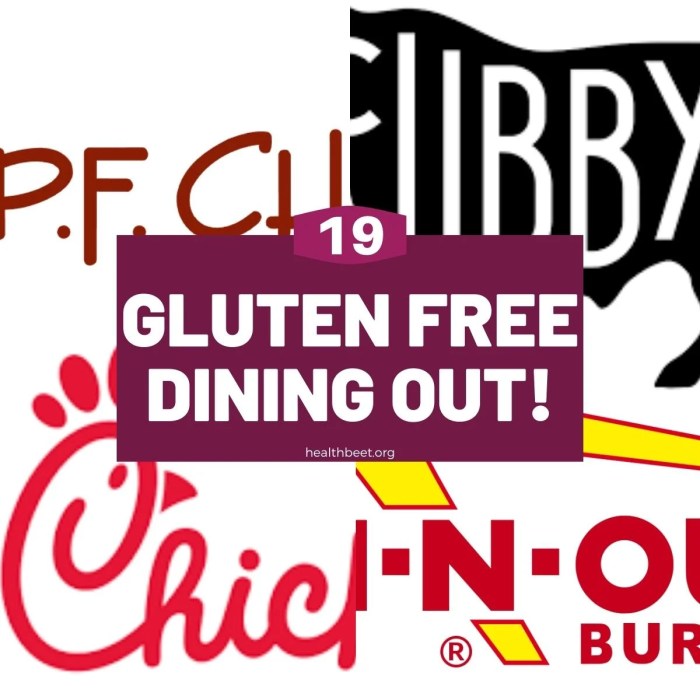
Dive into the world of Cost-effective ways to promote your restaurant on social media with a detailed exploration of innovative strategies and practical tips. Discover how you can elevate your restaurant’s online presence and attract more customers through effective social media marketing.
Cost-effective social media platforms for restaurant promotion
When it comes to promoting your restaurant on social media, choosing the right platforms can make a significant impact on your marketing efforts. Here, we will explore some of the top cost-effective social media platforms for restaurant promotion, compare their cost-effectiveness, and discuss strategies to maximize your reach on each platform.
- Create engaging posts with high-quality images of your dishes to grab the attention of your audience.
- Utilize Facebook Ads to reach a wider audience based on demographics, interests, and behavior.
- Engage with your followers by responding to comments and messages promptly.
- Share visually appealing photos and videos of your food, ambiance, and behind-the-scenes moments to attract followers.
- Use relevant hashtags to increase the visibility of your posts and reach a larger audience.
- Collaborate with influencers or food bloggers to promote your restaurant to their followers.
- Post short and engaging tweets about daily specials, events, or promotions to keep your followers informed.
- Interact with your audience by retweeting and responding to mentions or direct messages.
- Use Twitter Ads to target specific audiences and drive traffic to your restaurant’s website or online ordering platform.
Engaging content ideas for restaurant social media promotion
In today’s digital age, creating engaging content is crucial for promoting your restaurant on social media platforms. By capturing the attention of your audience with visually appealing posts and utilizing user-generated content effectively, you can drive more traffic to your establishment. Here are some ideas to help you create compelling content for restaurant social media promotion.
Examples of engaging content for restaurants
- Behind-the-scenes videos showcasing the kitchen staff preparing signature dishes
- Interactive polls or quizzes related to food preferences or restaurant trivia
- Food photography contests where customers can submit their best photos of dishes
- Live cooking demonstrations or Q&A sessions with the chef
How to create visually appealing posts
Visual content is key to capturing the interest of your audience on social media. Here are some tips to create visually appealing posts:
- Use high-quality images or videos that highlight your food and ambiance
- Experiment with different angles and compositions to make your posts stand out
- Consistent branding and color schemes to maintain a cohesive look on your feed
- Utilize editing tools to enhance the visual appeal of your posts
Tips on using user-generated content effectively
User-generated content can be a powerful tool for social proof and engagement. Here are some tips on using it effectively:
- Encourage customers to tag your restaurant in their posts for a chance to be featured on your page
- Create dedicated hashtags for customers to use when sharing their experiences at your restaurant
- Showcase user-generated content in your feed or stories to highlight customer satisfaction and loyalty
- Engage with user-generated content by liking, commenting, and sharing posts from your customers
Utilizing influencers and collaborations for restaurant promotion
In today’s digital age, partnering with influencers and collaborating with other businesses can greatly enhance your restaurant’s online presence and attract new customers. By leveraging the reach and credibility of influencers, you can effectively promote your restaurant to a wider audience and increase brand awareness.
Benefits of partnering with influencers
- Increased visibility: Influencers have a loyal following who trust their recommendations, making them a powerful tool for reaching potential customers.
- Authenticity: Influencer collaborations can add credibility to your restaurant through genuine endorsements and reviews.
- Engagement: Influencers can create engaging content that showcases your restaurant in a unique and creative way, driving interest and interaction.
- Cost-effective: Compared to traditional advertising methods, influencer partnerships can be a more affordable way to promote your restaurant.
Potential collaboration opportunities in the restaurant industry
- Food bloggers: Collaborating with food bloggers can help generate buzz around new menu items or special promotions.
- Local businesses: Partnering with nearby businesses for cross-promotions or events can attract a broader customer base.
- Culinary experts: Working with chefs or food influencers can add credibility to your restaurant and attract food enthusiasts.
- Community events: Participating in local events or sponsoring community initiatives can help position your restaurant as a valued member of the community.
Approaching influencers and collaborating effectively
- Research and identify relevant influencers: Look for influencers whose audience aligns with your target demographic and brand values.
- Personalize your outreach: Craft tailored messages that highlight why collaborating with your restaurant would be beneficial for the influencer.
- Offer value: Provide influencers with incentives such as complimentary meals, exclusive experiences, or monetary compensation for their partnership.
- Set clear expectations: Clearly define the scope of the collaboration, including deliverables, timelines, and compensation, to ensure a mutually beneficial partnership.
Leveraging user reviews and feedback on social media
User reviews play a crucial role in promoting a restaurant on social media. They provide social proof and credibility to potential customers, influencing their decision-making process. Positive reviews can attract new customers, while negative reviews present an opportunity for improvement and showcasing excellent customer service. It is essential for restaurants to actively engage with user reviews to build a positive online reputation.
Strategies to encourage customers to leave reviews
- Ask for feedback in person: Train staff to politely request feedback from diners at the end of their meal.
- Incentivize reviews: Offer discounts or freebies for customers who leave a review on social media platforms.
- Create a review station: Set up a designated area in the restaurant where customers can easily leave feedback.
- Utilize social media: Regularly remind followers on social media to share their dining experiences and leave reviews.
How to respond to both positive and negative reviews professionally
- Respond promptly: Acknowledge and thank customers for positive reviews in a timely manner.
- Personalize responses: Address reviewers by name and show genuine appreciation for their feedback.
- Apologize and offer solutions: For negative reviews, apologize for any issues and provide solutions or compensation to rectify the situation.
- Take the conversation offline: Encourage further discussion offline to resolve any issues privately and maintain professionalism.
Utilizing paid advertising on social media for restaurant promotion

When it comes to promoting your restaurant on social media, utilizing paid advertising can be a powerful tool to reach a larger audience and drive more traffic to your establishment. In this section, we will explore the cost-effectiveness of different paid advertising options, targeting strategies to reach the right audience, and tips on measuring the success of paid advertising campaigns.
Comparing the cost-effectiveness of different paid advertising options
When deciding on which paid advertising options to invest in, it’s essential to consider the cost-effectiveness of each platform. Different social media platforms offer various advertising options, such as Facebook Ads, Instagram Ads, Twitter Ads, and more. Compare the cost per click (CPC), cost per thousand impressions (CPM), and return on investment (ROI) of each platform to determine which one aligns best with your budget and goals.
Discussing targeting strategies to reach the right audience
Targeting the right audience is crucial for the success of your paid advertising campaigns. Utilize the targeting features provided by social media platforms to narrow down your audience based on demographics, interests, behavior, and location. By reaching the right audience, you can increase the effectiveness of your ads and drive more relevant traffic to your restaurant.
Sharing tips on measuring the success of paid advertising campaigns
Measuring the success of your paid advertising campaigns is essential to determine the effectiveness of your strategies and make necessary adjustments. Track key performance indicators (KPIs) such as click-through rate (CTR), conversion rate, cost per acquisition (CPA), and return on ad spend (ROAS). Use analytics tools provided by social media platforms to monitor the performance of your ads and make data-driven decisions for future campaigns.
Creating a social media marketing plan for restaurants

In today’s digital age, having a solid social media marketing plan is crucial for the success of any restaurant. A well-thought-out strategy can help you reach a wider audience, increase brand awareness, and ultimately drive more customers to your establishment.
Key Components of a Social Media Marketing Plan
- Identify Goals: Define what you want to achieve with your social media efforts, whether it’s increasing foot traffic, boosting online orders, or enhancing brand loyalty.
- Know Your Audience: Understand who your target customers are, their preferences, and the platforms they frequent.
- Content Strategy: Plan out the type of content you will share, such as mouth-watering food photos, behind-the-scenes glimpses, or customer testimonials.
- Posting Schedule: Determine the optimal times to post on each platform to maximize engagement.
- Engagement Plan: Artikel how you will interact with your followers, respond to comments, and address any concerns or feedback.
- Metrics and Analytics: Set key performance indicators (KPIs) to track the success of your social media campaigns and make data-driven decisions.
Step-by-Step Guide to Creating a Marketing Plan
- Conduct a Social Media Audit: Assess your current social media presence, including platforms used, follower count, and engagement metrics.
- Set SMART Goals: Make sure your goals are Specific, Measurable, Achievable, Relevant, and Time-bound.
- Research Your Audience: Use analytics tools to gather insights on your target demographic’s behavior and preferences.
- Create a Content Calendar: Plan out your posts in advance, including captions, hashtags, and visuals.
- Allocate Budget: Determine how much you can invest in social media advertising, influencer partnerships, or other promotional activities.
- Monitor and Adjust: Regularly review your performance metrics, adjust your strategy as needed, and stay up-to-date with industry trends.
Adapting the Plan Based on Goals and Target Audience
A successful social media marketing plan is not set in stone—it should be flexible and adaptable to meet your restaurant’s specific objectives and cater to your audience’s preferences. Whether you want to increase reservations, drive online orders, or build brand loyalty, tweaking your strategy based on real-time data and feedback is key to achieving your goals.
In conclusion, mastering the art of cost-effective promotion on social media can significantly impact your restaurant’s success. By implementing the strategies discussed, you can enhance engagement, increase visibility, and ultimately drive more traffic to your establishment. Stay ahead of the competition and watch your restaurant thrive in the digital age.
FAQ Insights
How can I determine the best social media platform for my restaurant?
To choose the right platform, consider your target audience and the type of content you plan to share. Research where your potential customers are most active and focus your efforts there.
Is it necessary for restaurants to collaborate with influencers?
While not mandatory, partnering with influencers can significantly boost your restaurant’s visibility and credibility. Choose influencers whose values align with your brand for authentic promotion.
How should I respond to negative reviews on social media?
When addressing negative feedback, always respond promptly, acknowledge the issue, and offer a solution. Show that you value customer feedback and are committed to improving the customer experience.


